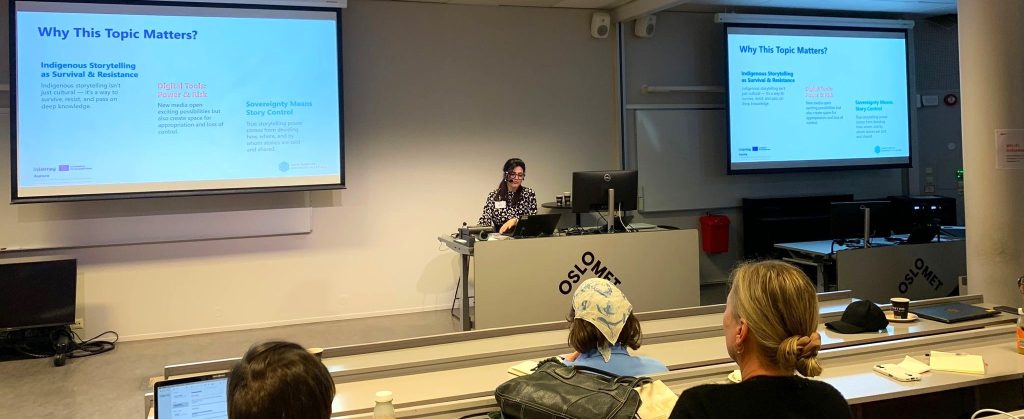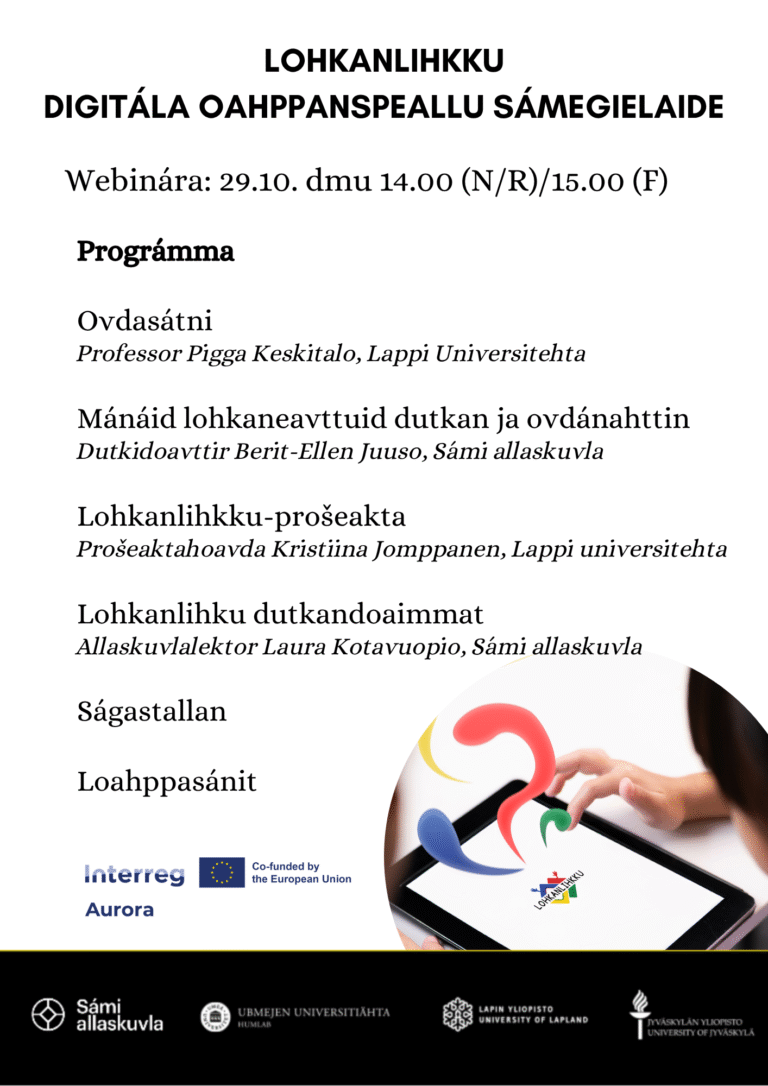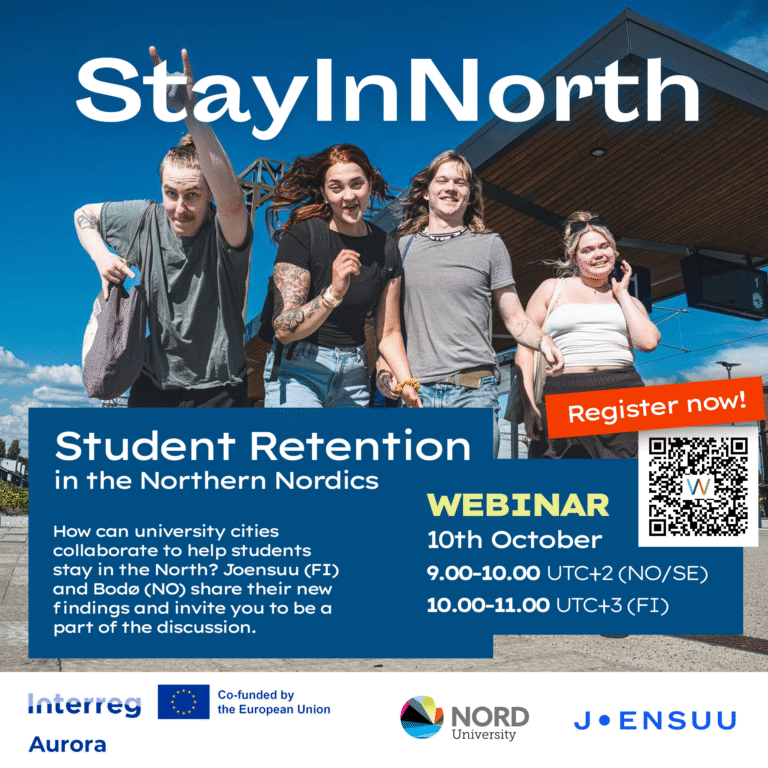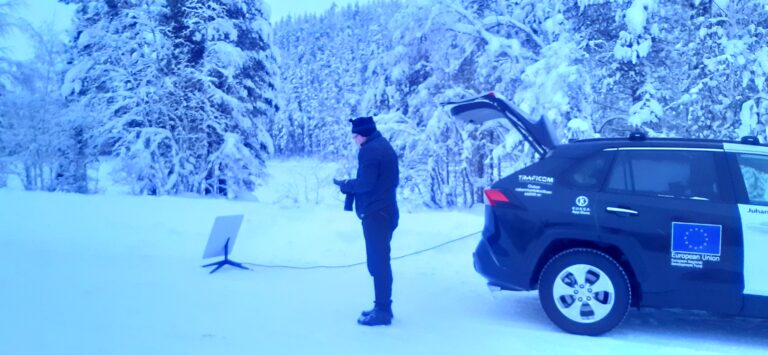Photo: Dr. Amna Qureshi presenting the research paper Cultural Sovereignty and the Future of Indigenous Digital Storytelling at the Nordes Conference. Photo credits: Mari Suoheimo
At the Nordes Conference on Relational Design 2025 in Oslo, August 2025 a publication emerging from the Interreg Aurora funded project Indigenous Digital Storytelling with New Media was presented. The paper, Cultural Sovereignty and the Future of Indigenous Digital Storytelling, co-authored by Dr. Amna Qureshi, Professor Jonna Häkkilä, Professor Pigga Keskitalo, and Dr. Inker-Anni Linkola-Aikio from the University of Lapland, lays the theoretical foundation for the ongoing project, setting the stage for future research and concrete community outcomes across Sápmi.
“Indigenous digital storytelling extends beyond sharing narratives. It is a practice of cultural sovereignty, self-determination, and knowledge stewardship.” – extract from the published research article. At the heart of the research is a framework combining relational design, Indigenous methodologies, cultural sovereignty, and digital environments.
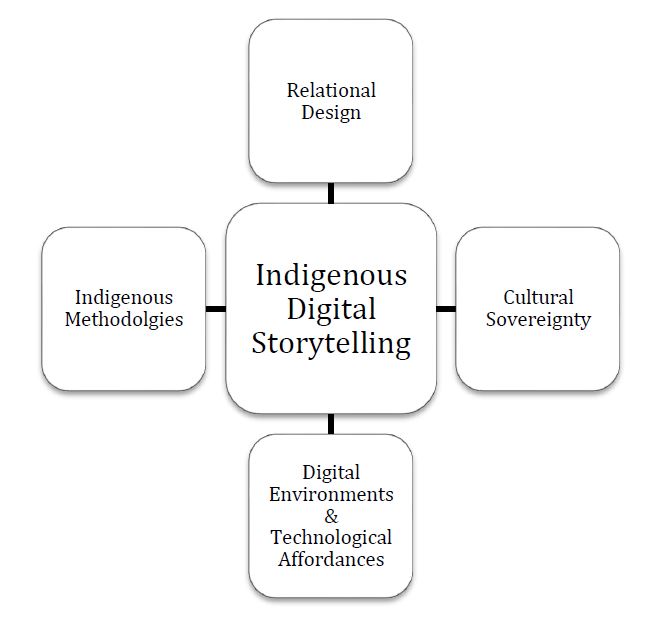
Framework illustrating four interconnected perspectives that shape Indigenous digital storytelling as a dynamic and relational practice. Developed by the authors of the research paper Cultural Sovereignty and the Future of Indigenous Digital Storytelling, 2025.
Dr. Qureshi explains: “Our work is about ensuring storytelling remains rooted in Indigenous ways of knowing, even as we use emerging media. The research gives us the tools to build not only stories, but ethical infrastructures around them.”
Professor Häkkilä adds: “This is also a design challenge to develop technological platforms that respect Indigenous governance and cultural protocols rather than overwrite them.”
Looking beyond theory, the paper underpins the Indigenous Digital Storytelling with New Media project (Interreg Aurora 2024–2027), which is already delivering tangible results. At the University of Lapland in Finland, the team is embedding Indigenous cultural contexts into the forthcoming Arctic Indigenous Cinema Master’s Programme, launching in January 2026, and developing the research groundwork for ethical storytelling frameworks. In Norway, Sámi Allaskuvla students are engaging in screenwriting courses grounded in Sámi and Indigenous storytelling traditions. In Sweden, Umeå University has produced a digital storytelling map prototype, enabling location-based narratives that fade over time to symbolise memory and temporality.
“These outcomes are not ‘future promises’ but are already unfolding,” notes Professor Häkkilä. Dr. Qureshi adds: “The publication sets the academic scaffolding, but the real-world work in teaching, tools and community co-creation is in motion.”
With the theoretical underpinnings now formally published and the first outputs visible, the consortium is well-positioned to conduct deeper research into how relational design and cultural sovereignty principles can transform Indigenous digital storytelling for the next generation.
You can find more information about the project Indigenous Digital Storytelling with New Media on this web page.

